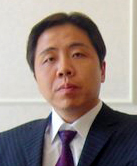
Predicting that 2005 will be a year fraught with perilous change, Gartner analysts at a roundtable discussion in London today laid out a list of "must do" resolutions to help CIOs navigate the turning tides of IT.
Recovering economies, globalization and regulatory demands will create a business need for IT, but technology professionals will have to redefine their roles to show that they are as savvy at business as they are with technology, the analysts said.
That means IT professionals will have to become more involved with the business side of operations and make technology decisions that are aligned with the strategies and financial goals of their companies. The actual technology they use is unlikely to change over the next few years, but the way it's leveraged will, the analysts said.
"IT leaders have to be shifting their focus away from simply managing technology and to look to managing business information, processes and relationships," said John Mahoney, chief of research and IT management for Gartner in Europe.
The advice comes as more companies look to slash IT budgets by outsourcing functions and reducing internal staff. If IT professionals fail to show their usefulness in the boardroom as well as the server room, they could face elimination. In fact, Gartner predicts that by 2008, most IT departments will employ half as many staffers as they do now, Mahoney said.
As a result, IT professionals face some serious decisions over the next year about what kind of roles they want to have in their field, the analysts said. They must decide if they want to be technology managers or business managers with IT expertise.
"There's a fork in the road, and because business IT leaders are more rare, we see more of a demand there," Mahoney said.
The news may jar IT workers, but it shows that companies must be able to quickly steer change in their business as they face growing competition and unpredictable macroeconomic and political forces, analysts said.
"Chief executives see technology as a barrier to change. This is the most important finding Gartner has made this year," said Mark Raskino, research director of business process and applications at the Stamford, Conn.-based company.
Legacy systems and legacy attitudes about how IT staff should function梐s separate from business decision making梐re seen by corporate chief executives as blockades to business agility, the analysts said. Technology complexity is viewed as another hindrance to companies' ability to quickly change directions, and Gartner predicts that simplification of IT systems will also be on CIOs' to-do lists for the coming year.
The analysts suggested creating policies to foster simplification, such as requiring older applications to be killed when new ones are added. Gartner also advised IT staffs to cap the number of vendors they contract, reduce management time and make sure out-of-date relationships are eliminated.
The analysts also predicted that companies will continue to have a broad array of IT suppliers, and the days of having a single partner or supplier are over as businesses look for specific solutions to meet their needs and budgets. However, they urged caution.
"Our advice is to challenge best of breed unless it is critical to your business. Otherwise, good enough is good enough," Mahoney said.
Outsourcing will continue to be a significant trend in the years ahead, which will simplify internal operations but put more of an onus on IT workers to prove their worth.
"Despite the fact that IT is a difficult place to work already, it's going to get a lot more difficult and a lot more complex," Mahoney said. Gartner will formally release its CIO "must do" resolutions for 2005 next week.
|
-
没有关键字相关信息!
- 信息系统运维预算定额参考标准研究[04-09]
- 第2章 跨文化管理理论和实践[01-14]
- 16:什么是关键成功因素法(CSF)?[06-09]
- 第4章 跨文化沟通[01-14]
- 24:eSCM-SP(服务提供商外包能力模型)有哪些…[06-10]
- 治理评论第一期[01-20]
- 治理评论第六期[01-20]
- 治理评论第四期[01-20]
- 治理评论第五期[01-20]
- 治理评论第三期[01-20]
- 治理评论第二期[01-20]
- 太极凭什么中标12306? [09-26]
- 中国国际航空股份有限公司--书评[11-01]








